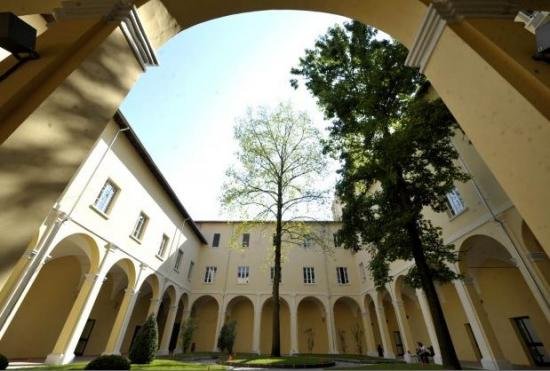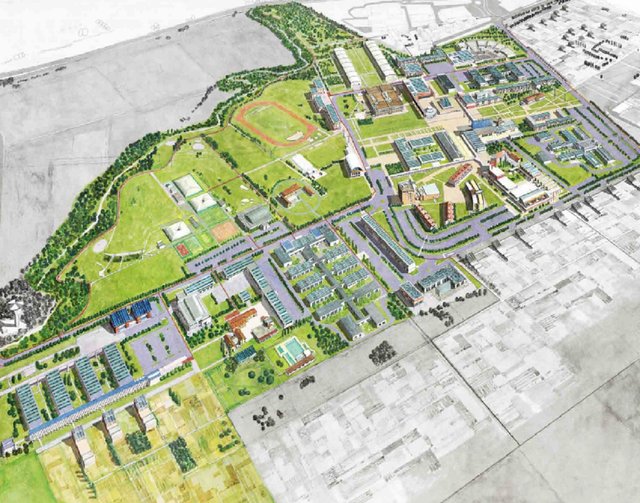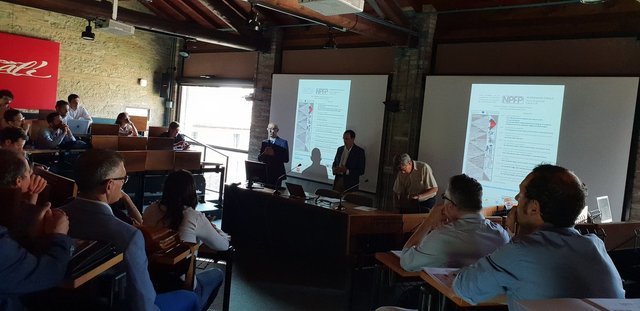
I know. Is not exactly technology what comes to mind when you think about Parma. It’s more about “prosciutto” or “parmigiano”.
Well, if you think those are its only excellences, you’d better take a look at its amazing University!
Founded on 962 a.c., when Emperor Ottonian I conferred on Parma’s Bishop Uberto the initiation of the University in the “diploma”, a document that was the foundation for an educational institution that it is nowadays one of the most innovative in Europe, thanks to its connection with the business world, the technological facilities and the excellence in the researches carried out here.

With 9 departments, 80 cycle degree courses, postgraduate schools, teachers training courses, master programmes and PhDs, 1.700 faculty and staff members, the University attracts 25.000 students (with a rage of 5.000 graduates per year), many of which are hosted in a forefront Campus, a 77-hectare area which includes scientific departments, modern and fully-equipped lecture halls, study areas, technologically advanced laboratories, a huge conference centre, several sport facility and a canteen and the prestigious Tecnopolo, the very feather in its cap!
One of the fundamental component of the regional ecosystem for innovation, together with the science & technology departments, the CNR (National Centre for the research), IMEM Institute and the informal spaces AREA S3 — which helps youngers to make acquaintance with the job market and new technologies — the Tecnopolo has been financed by FESR (European found for regional development ) 2007/20013 and hosts 7 research laboratories:
• Biopharmanet Tec, currently working on the development of new dust medicines on a platform for the pulmonary drug delivery.
• Future Technology Lab (ICT and creative industries), where researchers and students are developing technologies for the 4.0 industry, realizing prototypes for supply chain companies and public administration offices using RFID technologies and virtual reality.
• COMT (Centre for Molecular and Translational Oncology), which has the aim of creating a connection between research groups in the oncology field, promoting their interaction with public and private bodies and the pharmaceutical and biomedical industry and finding new ways to transfer automatically the laboratory discovers to the patients
• CIDEA (Interdepartmental Centre for Energy and Environment) , which operates in the renewable energy field providing consultancy and support to public and private bodies with regard to green economy, energy chain, environmental impact and data acquisition.
• CIM (Measurement Interdepartmental Centre), operating in the development of forefront measurement tools and managing measurements services throughout complex scientific methods.
• SITEIA (Interdepartmental Centre for Agricultural Safety, Technology and Innovation), a laboratory where researchers are constantly working on new ideas, projects and analysis to transfer technological discoveries to the food chain.
• CIPACK (Interdepartmental Centre for the Packaging), which has the aim to promote and coordinate basic and applied researches on packaging, above all in the food and pharmaceutical sector.

All those laboratories boast the most important partnerships, and work with professional teachers and researches, who represent excellences in their fields, and are equipped with the latest technological devices with the aim of supporting industries in their innovative projects.
Thanks to this, the Tecnopolo has received almost 4 million euro of funds for the development of 16 innovative projects, among which are: a smart irrigation system using drones, new packaging machineries, efficiency-driven systems for smart buildings, new inhalable medicine and vacuums, and a study on a particular kind of wheat that would be able to prevent coeliac disease.

OPN has recently visited the Tecnopolo and it astonished us!
We were strongly impressed by the technology, the innovative devices, the laboratories, the number of projects and the competences of the researchers of this “made in Italy” excellence. Of course, we were particularly interested in the CIPAK, ruled by Professor Roberto Montanari, who together with his colleague Professor Massimo Bertolini, head of the Future Technology Lab, was so kind to show us around and present us the services they provide to industries: promoting scientific activities of the Centre, organizing meetings to disclose the results of their activities and discoveries, promoting synergy among the different scientific and technical competencies to gain a high level of excellence in the field, developing researches to improve the food, mineral natural waters, drinks and pharmaceutical products packaging, studying marketing and logistics with references to the packaging field, studying production and processing of food and pharmaceutical packages.
A forefront, innovative, technological and sustainable reality that is largely contributing to Italy and Europe technological improvement.